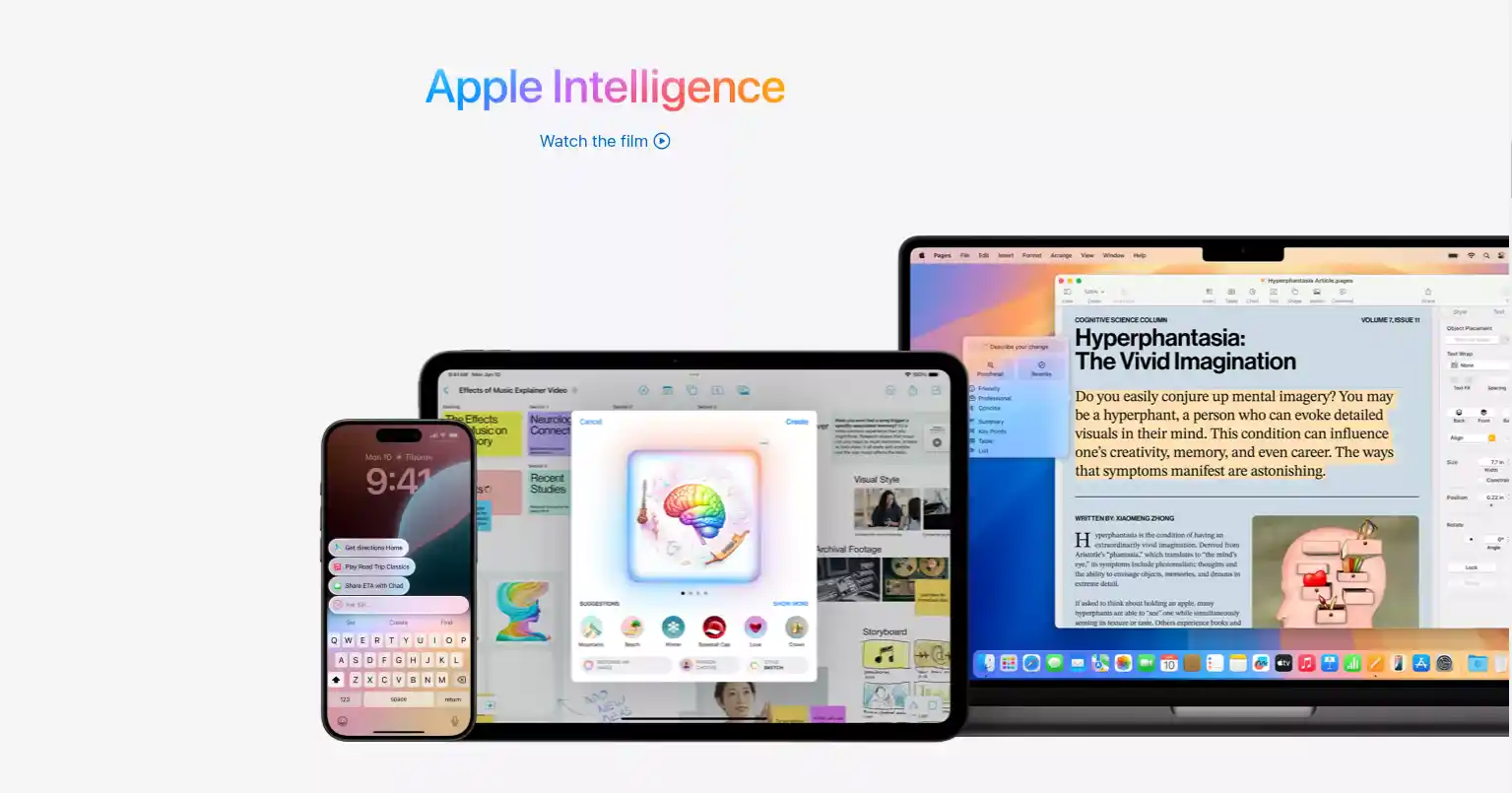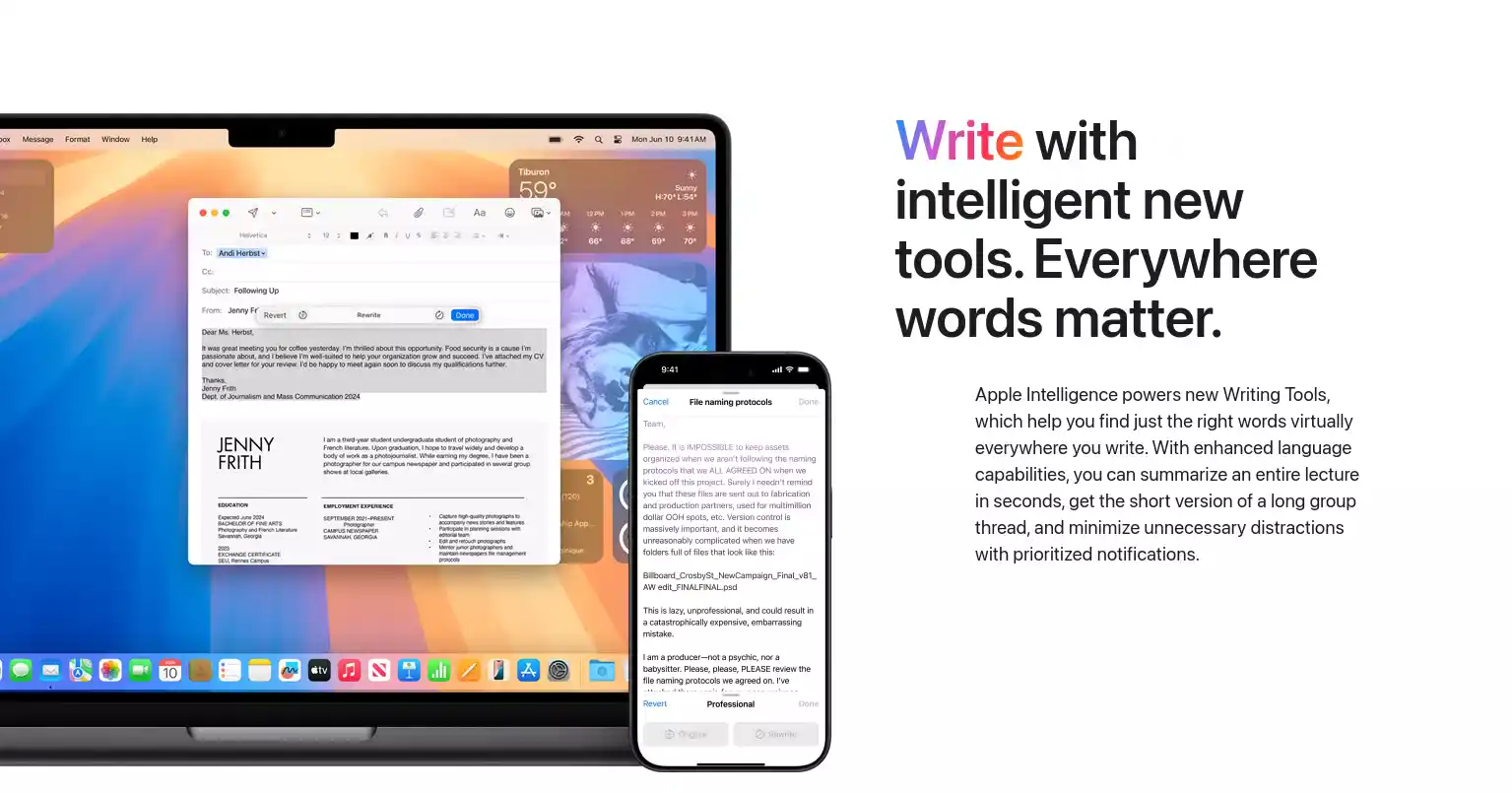Table of Contents
Apple has long been at the forefront of technological innovation, and its latest venture, Apple Intelligence, is no exception. As rumors and speculations swirl, many are eager to understand what Apple Intelligence entails, its potential release date, and who will benefit from this cutting-edge technology. In this article, we will explore all these aspects in detail, focusing on the key questions surrounding Apple Intelligence.
What is Apple Intelligence?
A New Era of Smart Technology
Apple Intelligence is anticipated to be a comprehensive suite of AI-driven tools and services designed to enhance user experience across Apple’s ecosystem. Leveraging advancements in artificial intelligence, machine learning, and data analytics, Apple Intelligence aims to provide personalized and intuitive interactions for users. This could range from smarter Siri functionalities, enhanced predictive text, and advanced facial recognition, to seamless integration across devices.

The Core Features
While Apple has not officially released detailed information, industry experts predict that It will encompass several core features:
- Enhanced Virtual Assistant: Siri is expected to undergo significant improvements, making it more responsive and capable of understanding complex commands and context.
- Predictive Services: It will likely offer predictive services that anticipate user needs, such as suggesting apps, automating tasks, and providing timely reminders.
- Advanced Security: Utilizing AI for better threat detection and response, ensuring user data is protected with top-notch security measures.
- Personalization: Tailoring user experiences based on individual preferences and usage patterns, making devices feel more personalized and efficient.
When is Apple Intelligence Coming?
Speculated Release Timeline
The release date of It has been a topic of much speculation. Based on Apple’s history of product launches and recent developments in their AI research, many analysts predict that It could be introduced in the next major iOS update. This would align with Apple’s annual WWDC event, typically held in June, where they unveil new software and technologies.
Development Phases
It’s believed that this is currently in advanced stages of development. Apple has been investing heavily in AI research, hiring top talent, and acquiring AI-focused companies to bolster their capabilities. This indicates that Intelligence could be ready for a beta release to developers within the next few months, followed by a public release shortly thereafter.
Who Will Get Apple Intelligence?
Device Compatibility
Apple Intelligence is expected to be integrated across the entire Apple ecosystem, including iPhones, iPads, Macs, Apple Watches, and possibly even Apple TV. However, the extent of functionality may vary depending on the device’s hardware capabilities. Newer devices with advanced processors and enhanced neural engines are likely to fully leverage the potential of this.

Operating System Requirements
To access Apple Intelligence, users will likely need to update to the latest version of Apple’s operating system. This means that older devices that are no longer supported by the latest iOS or macOS updates may not be able to utilize all the features of Apple.
Geographic Availability
Initially, It may be rolled out in key markets such as the United States, Europe, and parts of Asia. Over time, Apple is expected to expand the availability of these features to more regions, ensuring a global reach. The rollout might also be staggered based on language support and localization efforts.
The Impact of Apple Intelligence
Enhancing User Experience
This is poised to revolutionize the way users interact with their devices. By making technology more intuitive and responsive, Apple aims to create a seamless and engaging user experience. This could significantly enhance productivity, entertainment, and daily tasks for millions of users worldwide.
Competitive Advantage
With Apple Intelligence, Apple seeks to solidify its position as a leader in the tech industry. The integration of advanced AI features could set a new benchmark for competitors, pushing the envelope of what smart technology can achieve. This move will likely spur innovation across the industry, benefiting consumers with better and more sophisticated technology.

Ethical Considerations
As with any advanced AI technology, It will need to address ethical concerns related to privacy, data security, and algorithmic transparency. Apple has a strong track record of prioritizing user privacy, and it is expected that It will adhere to strict ethical guidelines to ensure user trust and confidence.
In conclusion, It represents a significant leap forward in AI-driven technology, promising to enhance the user experience across Apple’s ecosystem. While the exact details and release date are still under wraps, anticipation is building for what could be one of the most transformative advancements from Apple in recent years. As we await the official announcement, one thing is certain: This is set to redefine the way we interact with technology, making our devices smarter, more intuitive, and more personalized than ever before.
FAQs
What is Apple Intelligence?
It is a suite of AI-driven tools and services designed to enhance user experience across Apple devices by leveraging advancements in artificial intelligence, machine learning, and data analytics.
When will Apple Intelligence be available?
While there is no official release date, it is speculated that It could be introduced with the next major iOS update, potentially around Apple’s annual WWDC event in June.
Which devices will support Apple Intelligence?
This is expected to be compatible with the entire Apple ecosystem, including iPhones, iPads, Macs, Apple Watches, and possibly Apple TV. However, the functionality may vary based on the device’s hardware capabilities.
Will older Apple devices support this?
Older Apple devices that do not support the latest iOS or macOS updates may not be able to utilize all the features of Apple Intelligence. Newer devices with advanced processors are more likely to fully leverage the technology.
In which regions will Intelligence be available first?
This is expected to be rolled out initially in key markets such as the United States, Europe, and parts of Asia, with plans to expand to more regions over time.





